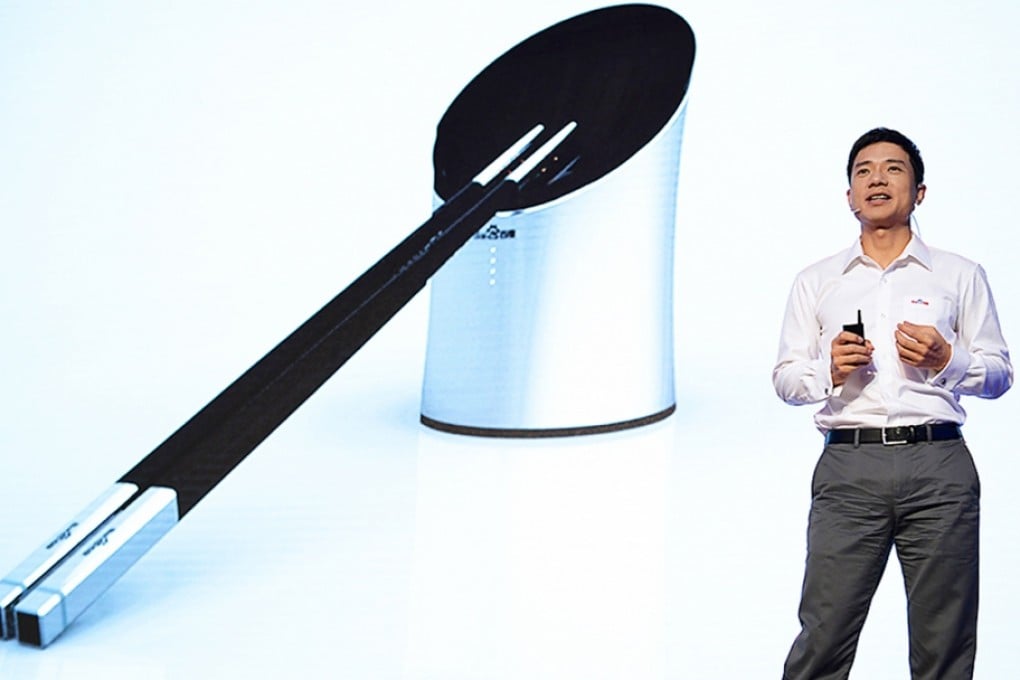‘Don’t eat too much!’ Baidu’s smart chopsticks will help you stick to your diet

Future chopsticks may not only be able to detect if food is unsafe to eat, but also, based on the data collected, warn if you have had too much meat and too little nutrients in recent meals.
That is the vision Chinese internet giant Baidu has for its so-called “smart chopsticks”, according to people familiar with the still in-development product.
The patent for “food testing methods and devices” outlines how the unit can analyse foods in real-time by touching them with the chopsticks or placing the food inside the device's base module, and checking the data gathered against an internal catalogue of known foodstuffs. It will then transmit the results to a smartphone app.
Submitted in November and only made public until this week, the application contains images of the base module that came with the smart chopsticks, previously shown in video demonstrations.